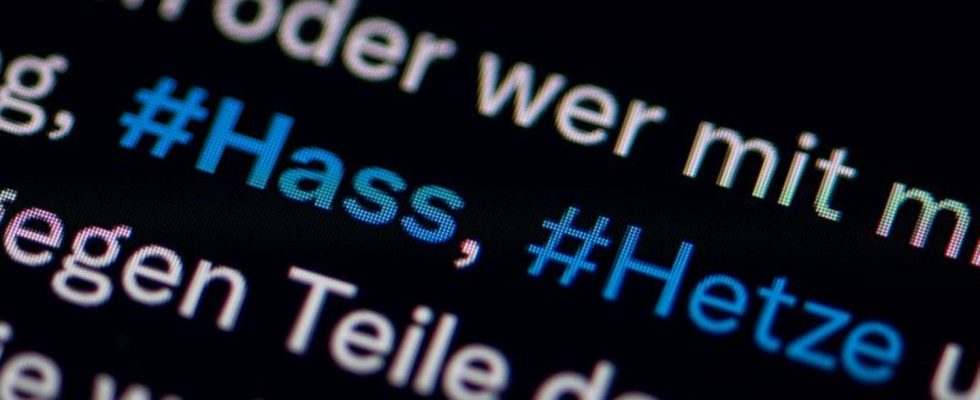Internet
Insulting, threatening, harassing: hate is widespread online
According to a study, those affected by hate posts limit their internet use. photo
© Fabian Sommer/dpa
Whether on TikTok, Instagram or X – no user is safe from hostility on social media. However, some groups are particularly affected. Many people react by withdrawing from the internet.
According to the study, a quarter of those surveyed were victims of sexual harassment or threats of physical violence – and this even occurs frequently for 7 and 5 percent of those affected. More than one in five people have found personal information such as place of residence or address online against their own will. 42 percent of young women between the ages of 16 and 24 have received a nude photo without asking.
“New wave of hatred of Jews”
Interior Minister Nancy Faeser (SPD) also warned that since Hamas’ terrorist attacks on Israel last October there has been “a terrible new wave of hatred of Jews.” The spread of illegal content, disinformation, hate and hate speech has increased significantly in almost all social media. “Anti-Semitic, racist and anti-democratic hatred is fueled primarily online,” said Faeser.
More hate online than before
Overall, according to the editors of the study: “Hate on the Internet has increased in recent years,” as Hanna Gleiß from “Das NETTZ” said, a body against hate speech on the Internet, which published the survey together with other initiatives. More than 3,000 Internet users aged 16 and over were surveyed. 89 percent of them say there is more hate online today than in the past.
“The youngest are most affected,” says Gleiß. Women are also disproportionately often the target of such attacks. When asked whether they had already been affected by hate online, almost one in three women between the ages of 16 and 24 answered in the affirmative. Among men of the same age, it is only about one in five. The proportions decrease with age. “We run the risk that an entire generation will see this as normal,” said Geiß.
Hostility because of views and appearance
According to the survey, people with a “visible migration background” and people with a homosexual or bisexual orientation are also particularly often exposed to hostility – for example, only 13 percent of heterosexual people, but 28 percent of homosexuals and even 36 percent of bisexuals.
When asked what the online hate was about, 41 percent put political views at the top – supporters of the Greens were particularly affected, followed by those of the AfD and SPD. For 37 percent of those affected by hate online, hostility was related to their appearance, 24 percent to their own physical or mental health, and 17 percent to a migration background.
Consequence: social withdrawal
Paus said that women, politically active people, Jewish, Muslim and non-white people are particularly often victims of hate online. The result, according to the study: those affected increasingly withdraw with their own posts and statements. 24 percent of all respondents stated that they had no longer used, deactivated or deleted their profile in connection with online hate.
Victims report social withdrawal, psychological complaints and problems with their own self-image, said the chairman of the Society for Media Education and Communication Culture, Rüdiger Fries. Many found it impossible to do anything about the virtual hostility. 70 percent of those affected said they were less likely to take part in discussions on the Internet because of online hatred. The study editors warned that members of groups that are particularly often hostile would fall silent online. “The field is left to the haters,” said Fries.
EU rules should help
Effective reporting systems, independent advice and offers of help – this is what the Minister for Family Affairs wants to provide increased help against hate online. Paus also referred to the new EU regulations in the Digital Services Act. This is intended to make it easier to remove illegal content. Special due diligence requirements should apply to large online platforms and search engines.
Faeser demanded that the new instruments of the law must now be consistently enforced. “We focus on prevention, on the consistent deletion of hate speech and on the criminal prosecution of the perpetrators.” In view of the wave of anti-Semitic and terrorist posts, the Federal Criminal Police Office responded with over 3,500 deletion requests and 290 removal orders from October to February.

